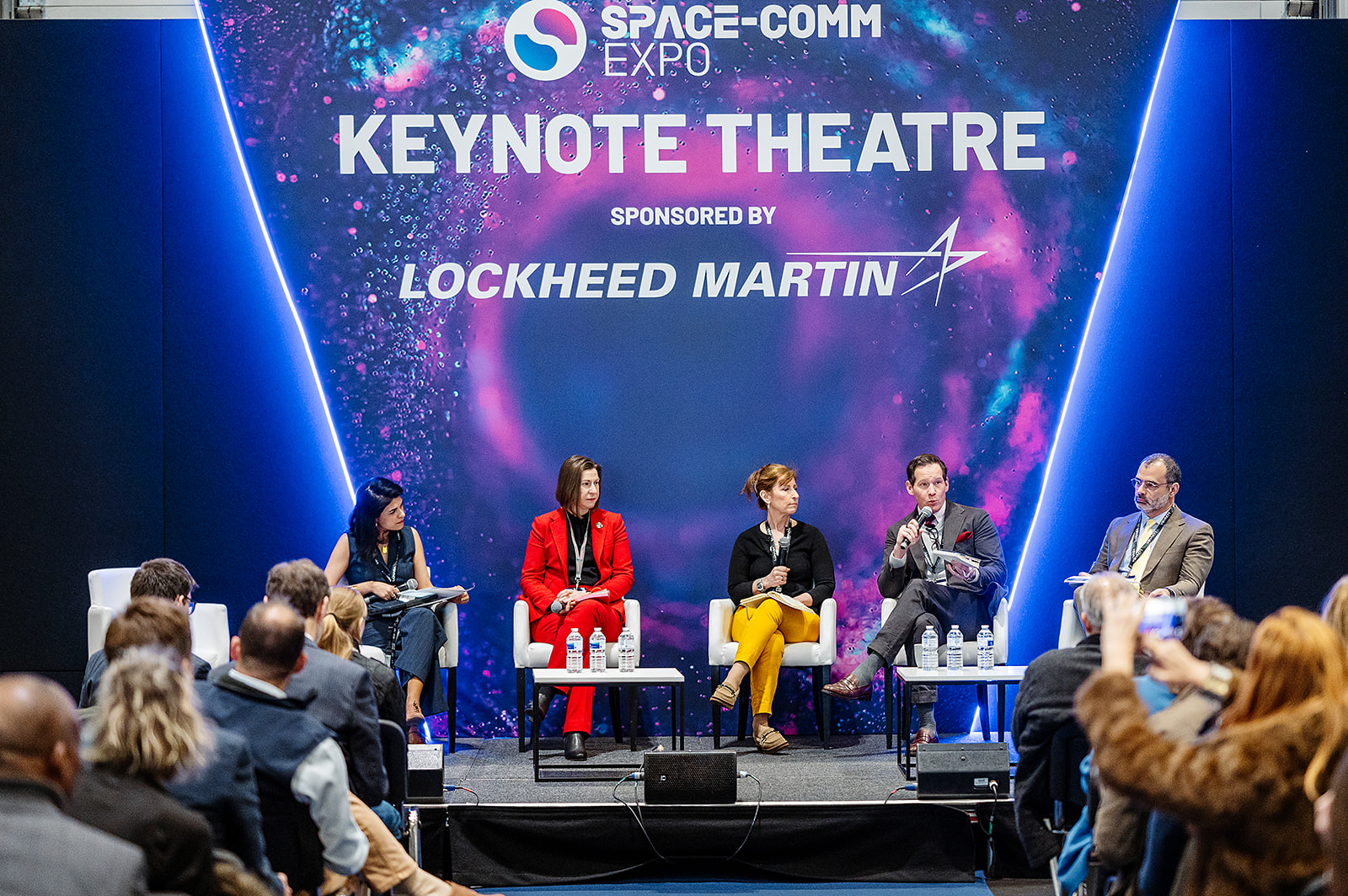Northumbria University safeguarding the health of astronauts

Above:
Dr Luke Hughes from Northumbria’s Aerospace Medicine and Rehabilitation Laboratory at the 2023 Humans in Space Challenge in Las Vegas.
Courtesy Northumbria University
Professor Nick Caplan and Dr Luke Hughes, from Northumbria’s Aerospace Medicine and Rehabilitation Laboratory, have won the 2023 Humans in Space Challenge, run by South Korean health technology company, Boryung, in partnership with Axiom Space and Aurelia.
Funding from the competition will allow Professor Caplan and Dr Hughes to develop a space-ready version of the Delfi Personalised Tourniquet System for Blood Flow Restriction, which is used to perform Blood Flow Restriction Exercise (BFRE). It involves applying a surgical-grade tourniquet cuff to an individual’s limb and inflating it to compress the limb and reduce blood flow and oxygen supply to muscle and bone tissue during exercise.
BFRE has been shown to mitigate loss of muscle and bone mineral in individuals following surgery and during limb immobilisation here on Earth.
National Aeronautics and Space Administration (NASA), the European Space Agency (ESA) and private space exploration companies have identified BFRE as a potential countermeasure to improve astronaut health during spaceflight, particularly in exploration missions beyond low Earth orbit to the Moon during which limited time and equipment will be available for exercise. However, currently no BFRE device exists that can be qualified and approved for crewed spaceflight research.
Northumbria’s research project aims to develop a proof-of-concept design for an innovative Personalised Tourniquet System for spaceflight that can be qualified and approved for future spaceflight missions.
Professor Caplan and Dr Hughes will work with Western Clinical Engineering, in Canada, as the owners and manufacturers of the commercially available device and Kayser Space, who specialise in developing and qualifying hardware for scientific research in space – to develop this space-ready version of the Delfi Personalised Tourniquet System.
“We are already investigating the Delfi Personalised Tourniquet System in simulated reduced gravity in our lab,” said Professor Caplan. “Having the funding to now develop this hardware for actual spaceflight will open up many possibilities for further research in space.”
Astronauts suffer loss of muscle and bone mineral in space due to the absence of gravity and these deficits can persist long after return to Earth.
According to Dr Hughes, current exercise hardware and protocols used on the International Space Station (ISS) are unable to completely mitigate these changes, and future missions to the moon and beyond will require smaller and less exercise equipment to be taken on board spacecraft.
“Blood Flow Restriction Exercise has been shown to mitigate loss of muscle and bone mineral in individuals following surgery and during limb immobilisation,” said Dr Hughes. “It requires minimal exercise equipment and is performed at low intensities.
“Our research will develop an innovative exercise device that meets the constraints of future missions and enables BFRE to be performed during spaceflight, with the goal of mitigating loss of muscle and bone in astronauts.”
The Humans in Space Challenge is a global competition for researchers and innovators from relevant fields. Based on the three carefully selected themes — 'Human Healthcare', 'Human Lifestyle' and 'Human Place'. For the competition, participants identified various challenges faced by humanity in space and proposed solutions to address them.
The Challenge winners were awarded investments and research awards alongside opportunities to participate in tailored mentorship programs led by space experts and engage with an expansive network of prominent venture capitals, space agencies, national research institutions and industries.
Renowned space figures from NASA, ESA, Harvard University, Massachusetts Institute of Technology (MIT) and Stanford University actively engaged in the evaluation process and will support the growth of Challenge winners.













